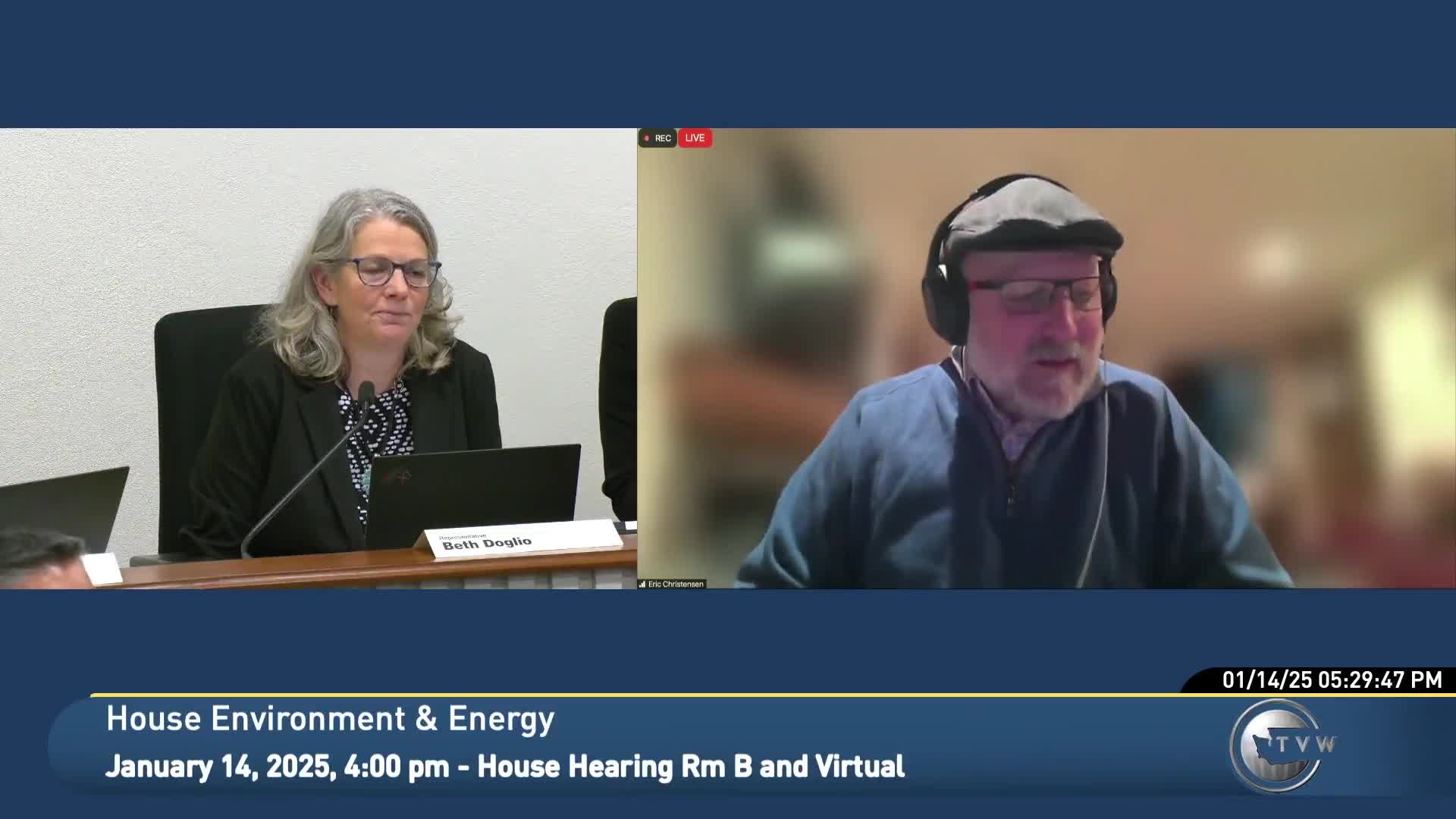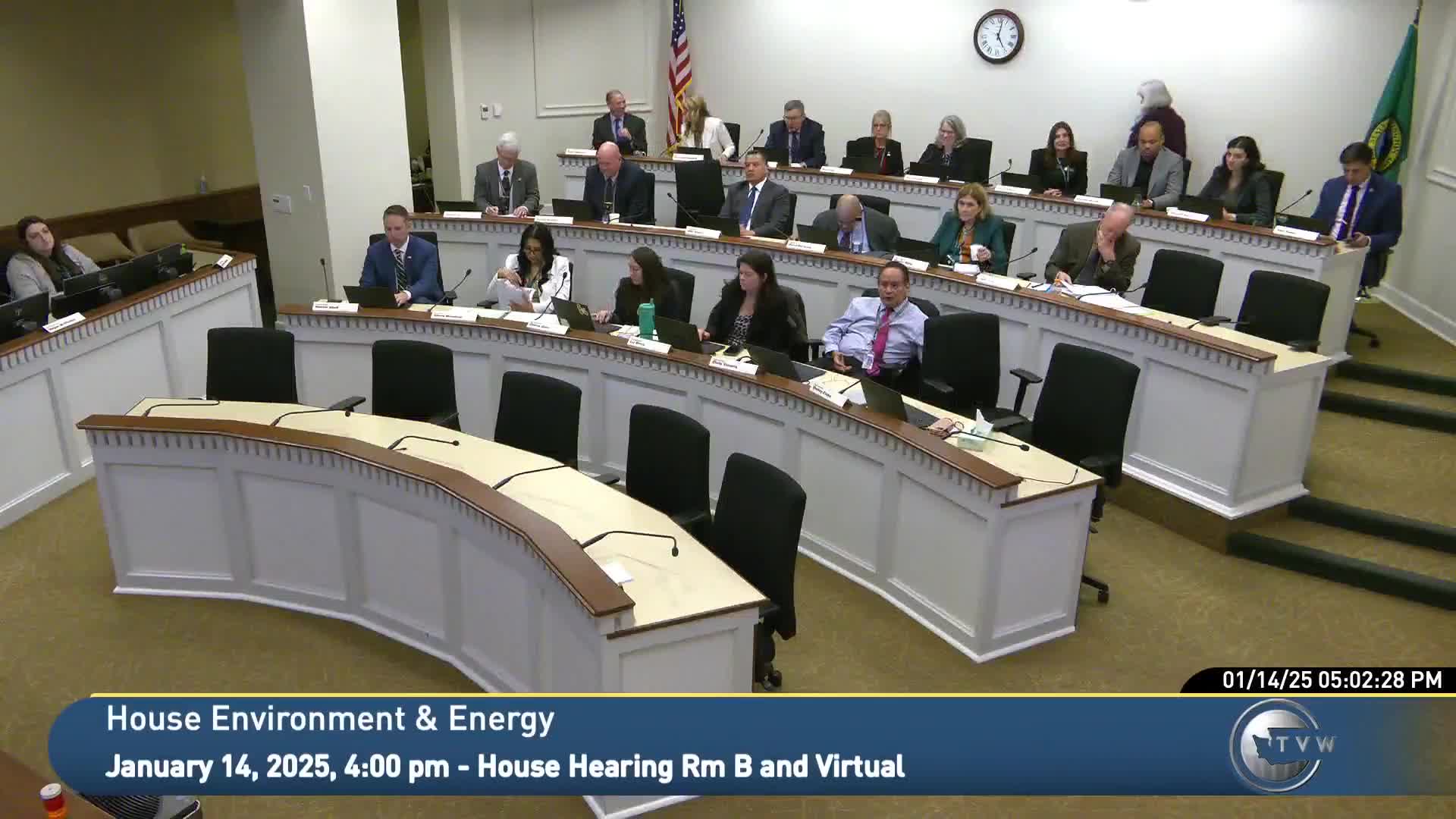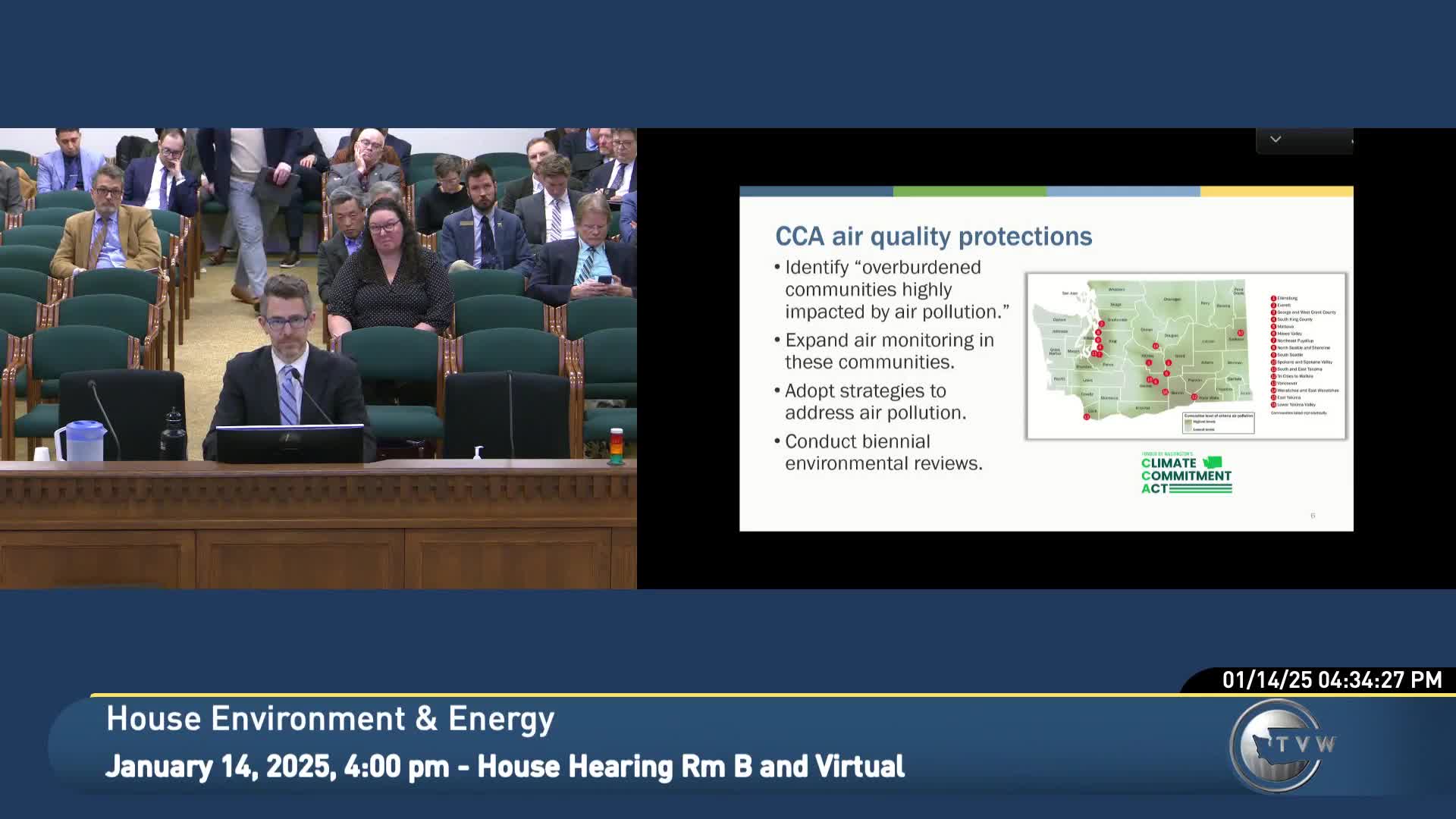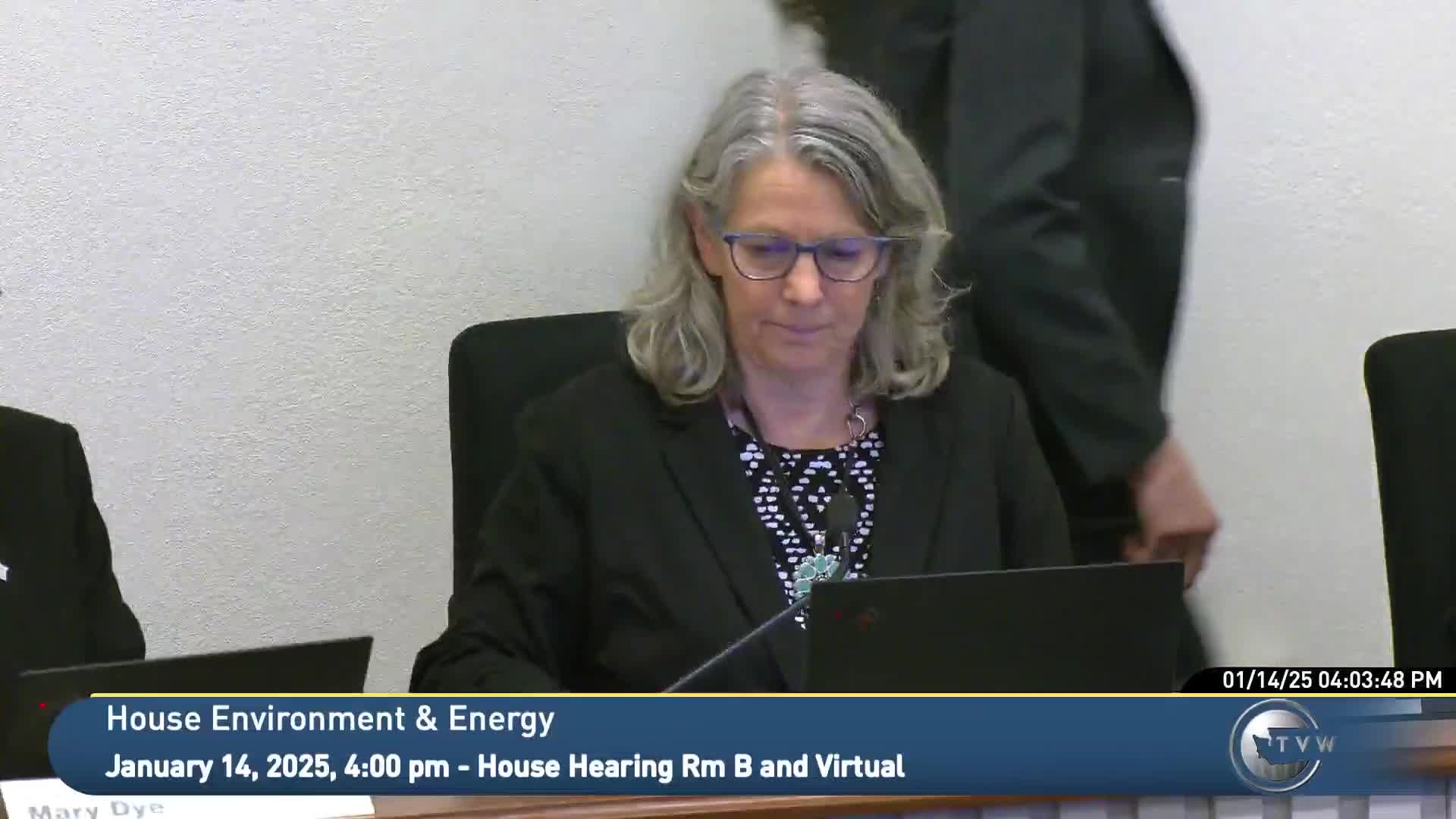Article not found
This article is no longer available. But don't worry—we've gathered other articles that discuss the same topic.

Permitting reform report recommends staffing, SEPA reforms and a state renewable‑energy authority to speed clean energy projects

Commerce details Clean Buildings implementation, incentives and compliance timeline

Ecology outlines Clean Fuel Standard mechanics, market trends and forthcoming rule changes

